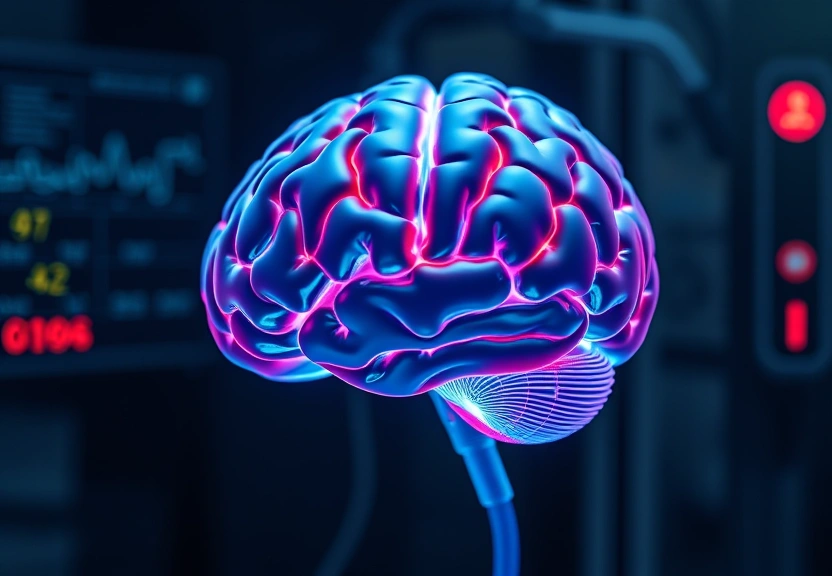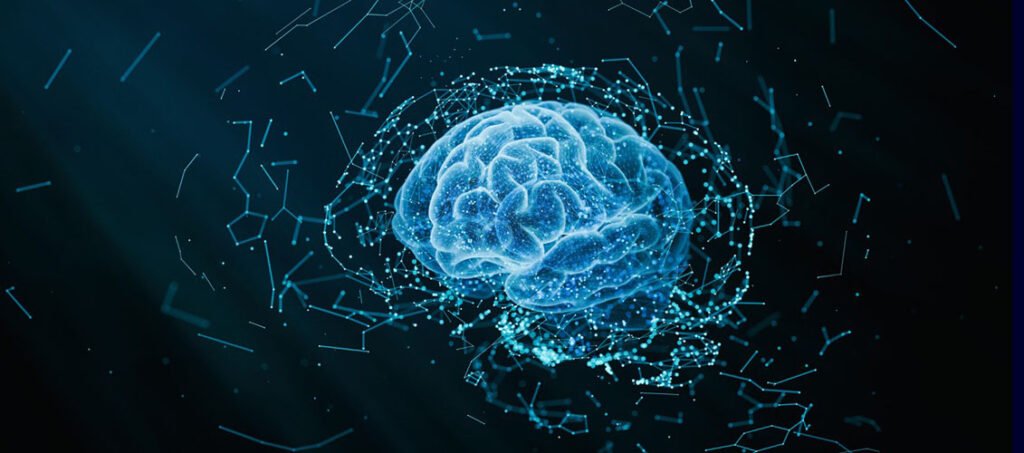Revolutionary AI Brain Model Set to Transform ICU Patient Monitoring
In the fast-paced world of healthcare, innovative technologies are continually emerging to enhance patient care and improve outcomes. One of the most exciting advancements is the development of an AI brain model designed specifically for monitoring patients in Intensive Care Units (ICUs). The Cleveland Clinic, in collaboration with the startup Piramidal, is at the forefront of this groundbreaking initiative. By utilizing brain wave data, this AI model aims to revolutionize how medical professionals monitor and interpret patient conditions in real-time.

As the demand for more efficient and effective patient monitoring systems grows, the integration of artificial intelligence into healthcare presents a unique opportunity. The AI brain model developed by the Cleveland Clinic and Piramidal promises to provide deeper insights into patient health, enabling timely interventions and personalized care. This article delves into the mechanics of this innovative technology, its potential impact on ICU patient monitoring, and the future of AI in healthcare.
The Need for Advanced Monitoring in ICUs
ICUs are critical environments where patients often face life-threatening conditions requiring constant monitoring. Traditional monitoring systems, while effective, can be limited in their ability to provide comprehensive insights into a patient’s neurological status. This is where the AI brain model comes into play, offering a sophisticated alternative that monitors brain activity through advanced algorithms. Understanding the need for such innovation is essential to appreciate the significance of this AI model.
Challenges in Current ICU Monitoring
Current patient monitoring systems primarily rely on vital signs such as heart rate, blood pressure, and oxygen saturation. While these metrics are vital, they do not provide a complete picture of a patient’s neurological state. Some of the challenges faced include:
- Delayed Response: Traditional monitoring may not detect subtle changes in a patient’s condition until it is too late.
- Limited Neurological Insights: Current systems lack the ability to assess brain function in real-time.
- Potential for Human Error: Manual monitoring can lead to oversights and delayed interventions.
Understanding the AI Brain Model
The AI brain model being developed by the Cleveland Clinic and Piramidal is designed to address these shortcomings by analyzing brain wave data collected from patients in real-time. This approach leverages machine learning algorithms that can identify patterns and anomalies in brain activity, providing healthcare providers with critical insights that can inform treatment decisions.
How Brain Wave Data is Collected
The AI model utilizes electroencephalography (EEG) to collect brain wave data. EEG is a non-invasive technique that measures electrical activity in the brain via electrodes placed on the scalp. This data is then fed into the AI system, which processes it to identify deviations from normal brain function.
Machine Learning Algorithms in Action
Once the brain wave data is collected, machine learning algorithms analyze it to detect changes indicative of various medical conditions, such as seizures or altered consciousness levels. By continuously learning from the data, the AI model improves its accuracy in predicting patient outcomes and alerting healthcare professionals to potential issues.
Impact on ICU Patient Monitoring
The integration of the AI brain model into ICU monitoring systems has the potential to significantly enhance patient care. By providing real-time insights into neurological health, this technology can lead to timely interventions, better resource allocation, and ultimately improved patient outcomes.
Benefits of the AI Brain Model
The benefits of implementing this AI brain model in ICU settings include:
- Real-Time Monitoring: Continuous analysis of brain activity allows for immediate detection of changes in a patient’s condition.
- Enhanced Decision-Making: Clinicians can make better-informed decisions based on comprehensive data rather than isolated metrics.
- Reduced Patient Risk: Early detection of neurological issues can lead to quicker interventions, reducing the risk of complications.
- Increased Efficiency: Automating the monitoring process frees up healthcare professionals to focus on patient care.
The Collaboration: Cleveland Clinic and Piramidal
The partnership between the Cleveland Clinic and Piramidal embodies a synergy between established medical institutions and innovative startups. The Cleveland Clinic, known for its commitment to patient care and medical research, provides the clinical expertise necessary to ensure the AI model meets the needs of healthcare professionals. Meanwhile, Piramidal contributes its technological prowess and experience in developing AI-driven solutions.
Research and Development Process
The development of the AI brain model involves rigorous research and testing. It includes validating the model’s accuracy through clinical trials and ensuring it adheres to healthcare regulations. This collaborative approach ensures that the technology is not only effective but also safe for patient use.
The Future of AI in Healthcare
The development of the AI brain model is just the beginning of what could be a transformative era in healthcare. As AI technology continues to evolve, its applications will likely expand beyond ICU monitoring to other areas of patient care, including diagnostics, treatment planning, and even preventive medicine.
Potential Future Applications
Some potential future applications of AI in healthcare include:
- Predictive Analytics: Using AI to predict patient outcomes based on historical data and real-time monitoring.
- Personalized Medicine: Tailoring treatment plans to individual patients based on AI analysis of their health data.
- Telemedicine Integration: Enhancing remote patient monitoring through AI-driven insights.
FAQs About AI Brain Model and ICU Patient Monitoring
1. What is the AI brain model developed by Cleveland Clinic and Piramidal?
The AI brain model is a system that analyzes brain wave data collected from patients in ICUs to provide real-time insights into their neurological health.
2. How does the AI brain model improve patient monitoring in ICUs?
It enhances patient monitoring by providing continuous analysis of brain activity, allowing for the early detection of changes in a patient’s neurological condition.
3. What technology does the model use to collect brain wave data?
The model utilizes electroencephalography (EEG), a non-invasive method for measuring electrical activity in the brain.
4. How does machine learning contribute to the AI brain model’s effectiveness?
Machine learning algorithms analyze brain wave data to identify patterns and anomalies, continuously improving their accuracy over time.
5. What are the potential future applications of AI in healthcare?
Future applications may include predictive analytics, personalized medicine, and enhanced telemedicine integration.
Conclusion
The collaboration between the Cleveland Clinic and Piramidal to develop an AI brain model represents a significant step forward in ICU patient monitoring. By harnessing the power of brain wave data, this innovative technology has the potential to transform patient care, provide critical insights for healthcare professionals, and ultimately improve patient outcomes. As this project continues to evolve, it paves the way for a future where AI plays an integral role in healthcare, enhancing not just monitoring but also the overall quality of care provided to patients.
📰 Original Source
Este artigo foi baseado em informações de: https://www.wired.com/story/an-ai-model-for-the-brain-is-coming-to-the-icu-cleveland-clinic-piramidal/



